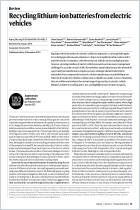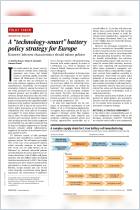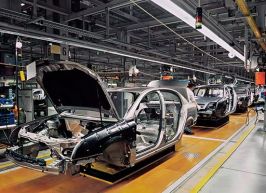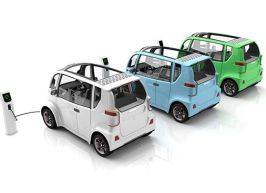Join getAbstract to access the summary!

Join getAbstract to access the summary!
Nature Editorial
Lithium-Ion Batteries Need to Be Greener and Ethical
Batteries are key to humanity’s future – but they come with environmental and human costs, which must be mitigated.
Nature, 2021
What's inside?
Lithium-ion batteries are central to a low-carbon future, but production and disposal cause problems.
Recommendation
Lithium-ion batteries are so integral to modern life, there’s a good chance you have one within arm’s reach right now. And they’re becoming even more important as people seek to reduce climate threats by electrifying their energy system. The only problem is that both production and disposal harm those who mine the raw materials as well as the environment. This opinion piece offers valuable advice for maximizing benefit while reducing harm by enhancing the reuse and recycling of lithium-ion batteries, and reducing the hazards associated with extracting the raw materials that go into them.
Summary
About the Author
The editorial staff of Nature produced this editorial as part of a 2021 series on materials and the circular economy.




















Comment on this summary